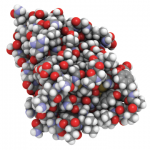Researchers did find one significantly increased risk: Squamous cell skin cancer among patients treated with abatacept had a hazard ratio of 2.2 compared with those on csDMARDs.
But Hjalmar Wadstrom, a PhD student at Karolinska who presented the study, said this finding “should be interpreted cautiously” and that it could be “simply due to multiple testing.” But he added it shouldn’t be “just disregarded and needs to be further studied.
“This study confirms previous findings of no increased risk of overall cancer with TNF-inhibitor treatment, neither as a first nor a second biologic,” he said, “Also, for tocilizumab, abatacept and rituximab, this study showed no increased risk of overall cancer.”
Thomas R. Collins is a freelance writer living in South Florida.
References
- Dorner T, Weinblatt, M, Durez P, et al. Remission and maintenance of efficacy in a phase 2b study of vobarilizumab, an anti-interleukin 6 receptor nanobody, in patients with moderate-to-severe rheumatoid arthritis despite treatment with methotrexate (abstract OP0098). Annual European Congress of Rheumatology. 2017 Jun 15. Madrid, Spain.
- Galeazzi M, Sebastiani G, Voll R, et al. Safety, tolerability and initial signs of efficacy of the fully human immunocytokine dekavil (F8IL10): A novel therapeutic approach for rheumatoid arthritis (abstract OP0099). Annual European Congress of Rheumatology. 2017 Jun 15. Madrid, Spain.
- Wadstrom H, Frisell T, Askling J. Overall cancer risk in patients with rheumatoid arthritis treated with TNF inhibitors, tocilizumab, abatacept, or rituximab (abstract OP0100). Annual European Congress of Rheumatology. 2017 Jun 15. Madrid, Spain.


